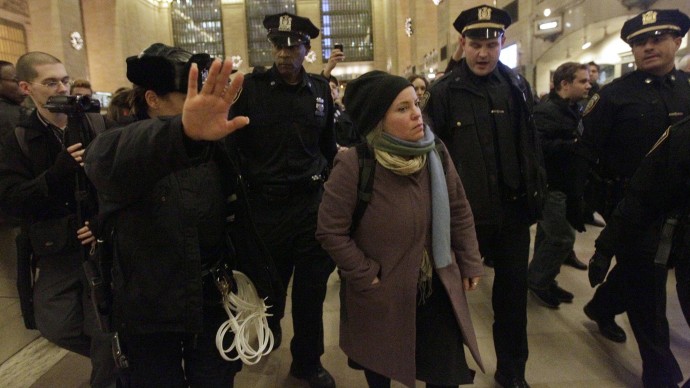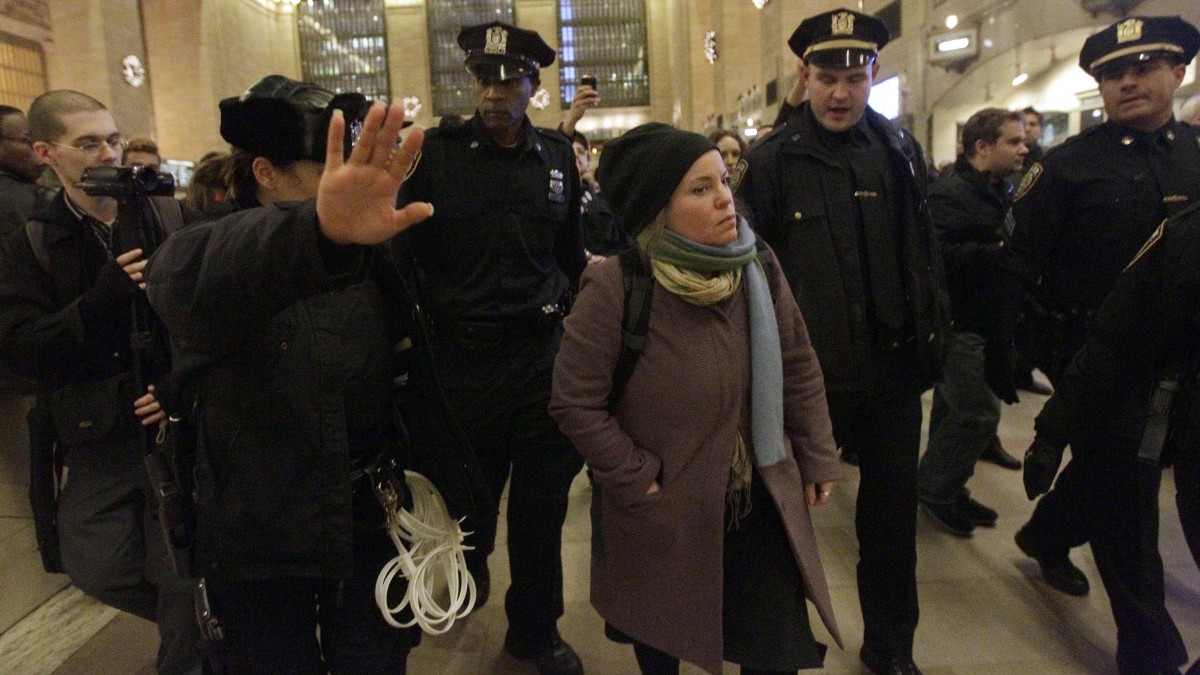
(MintPress) – A growing number of activists and citizen journalists are speaking out against the National Defense Authorization Act (NDAA), a piece of legislation the American Civil Liberties Union has called “a catastrophic blow to civil liberties” in the U.S.
Chris Hedges, an activist and former New York Times reporter filed a lawsuit against the Obama administration earlier this year with the help of colleagues, Occupy activists and libertarian groups. The outpouring of public opposition to the “indefinite detention clause” of the bill, was supported last month when a New York judge permanently blocked the provision, declaring it illegal.
However, an emergency injunction filed by the Obama administration reinstituted the law, setting up a legal battle that could put the issue before the Supreme Court in the future. Amber Lyon, a former CNN correspondent gave voice to journalists’ concerns in a recent piece, titled, “How the NDAA Directly Threatens Average Americans, and How You Can Take Action Now.” Lyon, representing the voice of a growing number opposed to the NDAA, describes the coercive, limiting effect this could have on the free press.
Amber Lyon speaks out
“The NDAA gives the federal government the power to behave like dictators and arrest any American citizen, or anyone for that matter, without warrant and indefinitely detain them in offshore prisons without charge and keep them there until the ‘end of hostilities,’” Lyon wrote in a blogpost this week.
Former CNN correspondent Amber Lyon is among a growing number of journalists speaking out against the NDAA’s indefinite detention clause. As a foreign correspondent, Lyon is no stranger to repressive state policies preventing journalists from reporting critically on public events and government action.
While covering the nascent stages of the ongoing protests in Bahrain, Lyon experienced first hand the state censorship of journalists covering the Arab Spring uprisings. CNN sent a four-person team to the small Gulf kingdom in March 2011 both to cover the massive street protests against the Al-Khalifa regime and to investigate allegations of torture and abuse.
While filming on the front lines of the protests, Lyon and the CNN crew received unprecedented access to secret hospitals where victims of government torture and abuse go to receive treatment. She also interviewed victims of the heavy-handed, repressive government tactics.
Writing about Lyon’s coverage, Glenn Greenwald of the Guardian newspaper writes in a previous article:
“In the segment, Lyon interviewed activists as they explicitly described their torture at the hands of government forces, while family members recounted their relatives’ abrupt disappearances. She spoke with government officials justifying the imprisonment of activists.”
However, part-way through their visit to Bahrain, Lyon and the CNN team were intercepted by police who whisked the reporters away from the front lines of the protests while censoring their filming to peaceful sites devoid of protest and public clashes with police.
While covering major human rights abuses, Lyon and the CNN team also exposed the troubling connections the U.S. maintains with a regime that commits daily human rights abuses with the help of the American and European allies.
After expressing concern for the plight of peaceful protesters in Bahrain, the U.S. briefly suspended arms sales to Bahrain. However, the U.S. resumed arms sales in May, even though U.S. weapons have allowed the Bahraini military to kill nearly 100 peaceful protesters since the beginning of the democratic uprising.
This type of censorship — the censorship that limits the ability of journalists to cover events, including, most importantly, public demonstrations critical of government policies — could be restricted in a similar fashion should the NDAA be enacted in its full, unedited form.
The risk to all citizens’ civil liberties
Lyon was later fired from CNN for supposedly unrelated reasons. However, Lyon feels differently about her termination and paid compensation, writing:
“I look at those payments as dirty money to stay silent. I got into journalism to expose, not help conceal wrongdoing, and I’m not willing to keep quiet about this any longer, even if it means I’ll lose those payments.”
The ambiguous “terrorist” label can be extended to even those who write about al-Qaida or contact sources for legitimate academic or journalistic inquiry. Although the Obama administration has said that the indefinite detention would not extend to those who contact known terrorists for their work, others believe that this is an unsubstantiated promise.
Naomi Wolff, an activist, writer and co-defendant in the case, commented on the risk to journalists who speak to terrorists and enemy combatants as part of their coverage, saying:
“I have discussed the terms of the Homeland Battlefield Bill – also known as the National Defense Authorization Act – with numerous other journalists, writers, and members of democracy-supporting organizations across the political spectrum. I have also discussed the bill with various political leaders, including city council members and legislators, who span the political spectrum in the United States. They all agree that the bill can potentially affect an American journalist who meets with and publishes reports on individuals connected to organizations deemed terrorist by the United States government.”


